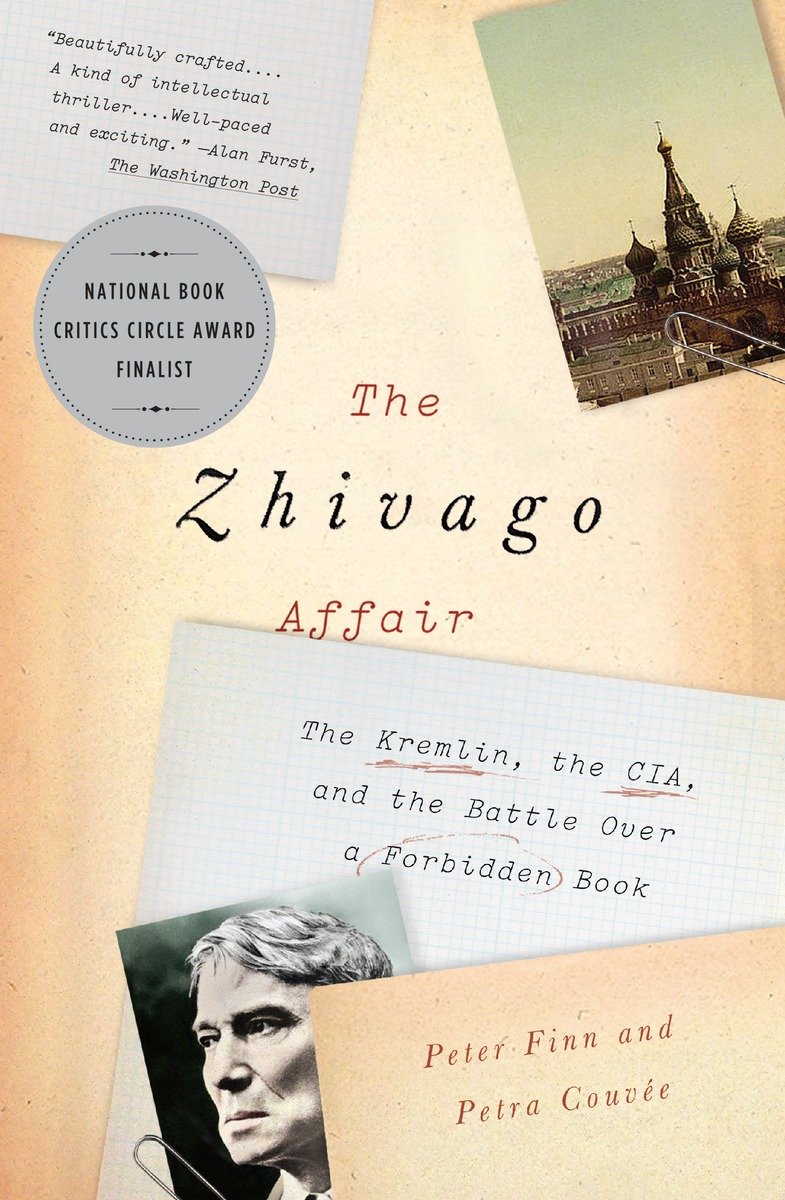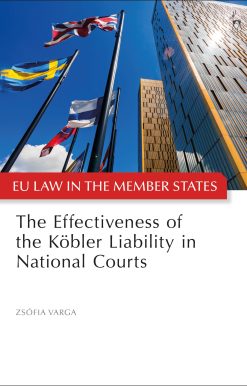The Zhivago Affair: The Kremlin, the CIA, and the Battle Over a Forbidden Book
14.00 JOD
Please allow 2 – 5 weeks for delivery of this item
Description
The Zhivago Affair is the dramatic, never-before-told story—drawing on newly declassified files—of how a forbidden book became a secret CIA weapon in the ideological battle between East and West.In May 1956, an Italian publishing scout went to a village outside Moscow to visit Russia’s greatest living poet, Boris Pasternak. He left carrying the manuscript of Pasternak’s only novel, suppressed by Soviet authorities. From there the life of this extraordinary book entered the realm of the spy novel. The CIA published a Russian-language edition of Doctor Zhivago and smuggled it into the Soviet Union. Copies were devoured in Moscow and Leningrad, sold on the black market, and passed from friend to friend. Pasternak’s funeral in 1960 was attended by thousands who defied their government to bid him farewell, and his example launched the great tradition of the Soviet writer-dissident. First to obtain CIA files providing proof of the agency’s involvement, Peter Finn and Petra Couvée take us back to a remarkable Cold War era when literature had the power to stir the world.(With 8 pages of black-and-white illustrations.)
Additional information
| Weight | 0.36 kg |
|---|---|
| Dimensions | 2.04 × 13.11 × 20.32 cm |
| PubliCanadation City/Country | USA |
| by | |
| format | |
| Language | |
| Pages | 384 |
| publisher | |
| Year Published | 2015-4-28 |
| Imprint | |
| ISBN 10 | 0345803191 |
| About The Author | Peter Finn is National Security Editor for The Washington Post and previously served as the Post’s bureau chief in Moscow. Petra Couvée is a writer and translator and teaches at Saint Petersburg State University.The Zhivago Affair is their first collaboration together. |
“Beautifully crafted and scrupulously researched. . . . A kind of intellectual thriller. . . . Well-paced and exciting.” —Alan Furst, The Washington Post “A fascinating book that is thoroughly researched, extraordinarily accurate in its factual details, judicious in its judgments, and destined to remain the definitive work on the subject for a very long time to come.” —New York Review of Books“Riveting, well-researched . . . Reads like a literary thriller.” —The New Republic“A rich and unanticipated story. . . . Finn and Couvée’s poignant depiction of Pasternak is the book’s greatest strength.” —The Daily Beast“A work of deep historical research that reads a little like Le Carré. . . . The authors show how both sides in the Cold War used literary prestige as a weapon without resorting to cheap moral equivalency.” —New York“An informative, fascinating, and often moving account of personal courage, espionage and propaganda, and the role of literature in the political struggle for the hearts and minds of people.” —Huffington Post “Thrilling. . . . Deftly combining biography, cultural history and literary tittle-tattle, [Finn and Couvée] have shone a light on a shadowy operation. . . . Crushingly poignant.” —Newsday“Fascinating. . . . The story of how Doctor Zhivago helped disrupt the Soviet Union holds some intriguing implications for the present and future of cultural conflict.” —The Atlantic “A remarkable story and fully sourced book, the scholarship peerless but never eclipsing one amazingly humanist story of a towering figure.” —New York Journal of Books“The authors persuasively argue that the ripples from the publication of this single book affected not only the author, his family and his friends, but also changed the balance of power in the world during a critical period.” — Columbus Dispatch “A galloping page-turner and a stark picture of a nation ruled by terror and unreason, which reads like a sinister rewrite of Alice in Wonderland.” —Sunday Times (London)“Extraordinary. . . . There is much to think about in The Zhivago Affair: the nature of genius; the terror that leads people to betray friends; and, above all, the potency of fiction. . . . The Zhivago Affair reveals the story of that triumph with vibrant authenticity and calm analysis.” —The Independent on Sunday (London)“Excellent, superbly researched, and as exciting in its way as any Cold War thriller. Pasternak himself emerges clearly and strongly in all his complexity. This was the most important literary controversy of the post-war world, and Finn and Couvée have presented it with immense care and colour. The aftermath of the affair still has resonance even now.” —John Simpson, BBC News “Finn and Couvée deal objectively with the characters involved and tell the story with exceptional vivacity.” —Literary Review “Fascinating… [Finn and Couvée] manage to shed new light on both the period and the characters involved.” —Financial Times “An extraordinary, gripping tale of art and espionage, The Zhivago Affair embodies the belief shared by its flamboyant cast of geniuses, barbarians, lovers and eccentrics: books matter.” —A. D. Miller, author of Snowdrops |
|
| Excerpt From Book | Chapter 1Bullets cracked against the facade of the Pasternak family’s apartment building on Volkhonka Street in central Moscow, pierced the windows, and whistled into the plaster ceilings. The gunfire, which began with a few isolated skirmishes, escalated into all-out street fighting in the surrounding neighborhood, and drove the family into the back rooms of the spacious second-floor flat. That, too, seemed perilous when shrapnel from an artillery barrage struck the back of the building. Those few civilians who ventured out on Volkhonka crab-ran from hiding spot to hiding spot. One of the Pasternaks’ neighbors was shot and killed when he crossed in front of one of his windows. On October 25, 1917, in a largely bloodless coup, the Bolsheviks seized power in Petrograd, the Russian capital, which had been called Saint Petersburg until World War I broke out and a Germanic name became intolerable. Other major centers did not fall so easily as militants loyal to the revolutionary leader Vladimir Lenin battled the Provisional Government that had been in power since March. There was more than a week of fighting in Moscow, the country’s commercial center and second city, and the Pasternaks found themselves in the middle of it. The family’s apartment building was on a street that crested a hill. The flat’s nine street-side windows offered a panoramic view of the Moscow River and the monumental golden dome of Christ the Savior Cathedral. The Kremlin was just a few hundred meters to the northeast along the bend of the river. Pasternak, who rented a room in the Arbat neighborhood, had happened over to his parents’ place on the day the fighting began and found himself stuck there, eventually huddling with his parents and younger, twenty-four-year-old brother, Alexander, in the downstairs apartment of a neighbor. The telephone and lights were out, and water only occasionally, and then briefly, trickled out of the taps. Boris’s two sisters—Josephine and Lydia—were caught in similarly miserable conditions at the nearby home of their cousin. They had gone out for a stroll on an unseasonably mild evening when, suddenly, armored cars began to careen through streets that quickly emptied. The sisters had just made it to the shelter of their cousin’s home when a man across the street was felled by a shot. For days, the constant crackle of machine-gun fire and the thud of exploding shells were punctuated by “the scream of wheeling swifts and swallows.” And then as quickly as it started “the air drained clear, and a terrifying silence fell.” Moscow had fallen to the Soviets. Russia’s year of revolution had begun the previous February when women protesting bread shortages in Petrograd were joined by tens of thousands of striking workers and the national war weariness swelled into a sea of demonstrators against the exhausted autocracy. Two million Russians would die in the carnage at the Eastern Front and another 1.5 million civilians died from disease and military action. The economy of the vast, backward Russian empire was collapsing. When troops loyal to the czar fired on the crowds, killing hundreds, the capital was in open revolt. On March 3, having been abandoned by the army, Nicholas II abdicated, and the three-hundred-year-old Romanov dynasty was at an end. Pasternak, who had been assigned to a chemical factory in the Urals to support the war effort, hurried back to Moscow. He traveled part of the journey on a kibitka, a covered wagon on runners, and warded off the cold with sheepskin coats and hay. Pasternak and his siblings welcomed the fall of the monarchy, the emergence a new Provisional Government, and, above all, the prospect of a constitutional political order. Subjects became citizens, and they reveled in the transformation. “Just imagine when an ocean of blood and filth begins to give out light,” Pasternak told one friend. His sister Josephine described him as “overwhelmed” and “intoxicated” by the charisma of Alexander Kerensky, a leading political figure, and his effect on a crowd outside the Bolshoi Theatre that spring. The Provisional Government abolished censorship and introduced freedom of assembly. Pasternak would later channel the sense of euphoria into his novel. The hero of Doctor Zhivago was spellbound by the public discourse, which was brilliantly alive, almost magical. “I watched a meeting last night. An astounding spectacle,” said Yuri Zhivago, in a passage where the character describes the first months after the fall of the czar. “Mother Russia has begun to move, she won’t stay put, she walks and never tires of walking, she talks and can’t talk enough. And it’s not as if only people are talking. Stars and trees come together and converse, night flowers philosophize, and stone buildings hold meetings. Something gospel-like, isn’t it? As in the time of the apostles. Remember, in Paul? ‘Speak in tongues and prophesy. Pray for the gift of interpretation.’ ” It seemed to Zhivago that “the roof over the whole of Russia has been torn off.” The political ferment also enfeebled the Provisional Government, which was unable to establish its writ. It was overwhelmed above all by the widely hated decision to keep fighting in the world war. The Bolsheviks, earning popular support with the promise of “Bread, Peace and Land,” and driven by Lenin’s calculation that power was for the taking, launched their insurrection and a second revolution in October. “What magnificent surgery,” Pasternak wrote in Doctor Zhivago. “To take and at one stroke artistically cut out the old, stinking sores!” The Bolsheviks, in their constitution, promised Utopia—“the abolition of all exploitation of man by man, the complete elimination of the division of society into classes, the ruthless suppression of the exploiters, the establishment of a socialist organization of society, and the victory of socialism in all countries.” Yuri Zhivago quickly is disillusioned by the convulsions of the new order: “First, the ideas of general improvement, as they’ve been understood since October, don’t set me on fire. Second, it’s all still so far from realization, while the mere talk about it has been paid for with such seas of blood that I don’t think the ends justify the means. Third, and this is the main thing, when I hear about the remaking of life, I lose control of myself and fall into despair.” The word remaking was the same one Stalin used when toasting his writers and demanding engineers of the soul. Zhivago tells his interlocutor, a guerrilla commander: “I grant you’re all bright lights and liberators of Russia, that without you she would perish, drowned in poverty and ignorance, and nevertheless I can’t be bothered with you, and I spit on you, I don’t like you, and you can all go to the devil.” These are the judgments of a much older Pasternak, writing more than three decades after the revolution and looking back in sorrow and disgust. At the time, when Pasternak was twenty-seven, he was a man in love, writing poetry, and swept along in the “greatness of the moment.” |
Only logged in customers who have purchased this product may leave a review.






Reviews
There are no reviews yet.